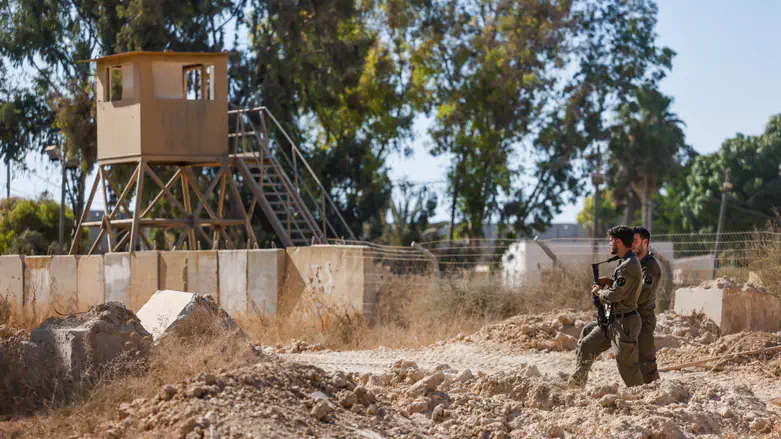
The investigation of the battle at Kibbutz Nahal Oz, which was presented to the families of the hostages, the bereaved families, and senior security officials, pointed to serious failures in the IDF's preparation and response to the October 7 attack.
The investigation team, headed by Col. (res.) Yaron Sitbon, determined that "the IDF failed in its mission to protect Kibbutz Nahal Oz."
The terrorists infiltrated by surprise – IDF forces were unprepared
According to the findings of the investigation, more than 180 terrorists infiltrated the kibbutz in wages. In the first stage, the local security forces and residents managed to stop the initial attack, but in the absence of rapid IDF reinforcements, the terrorists continued to enter the kibbutz and carried out murders and kidnappings.
In the first hours of fighting, 11 kibbutz members were murdered, including members of the local security squad, and eight were kidnapped to the Gaza Strip, including two foreign citizens.
The command structure collapsed – the forces were left without guidance
One of the main findings of the investigation is the collapse of the IDF command structure. Already in the first hour of the attack, the command structure in the area ceased to function, and a clear picture of the forces on the ground was not built.
The Golani soldiers in the sector acted with determination, but were significantly outnumbered. Only in the afternoon, with the arrival of the commander of Division 98, was it possible to cut the situation and resume control of the battle.
The investigation determines that the IDF was not prepared for a scenario of a massive infiltration of hundreds of terrorists simultaneously into many areas.
The training and preparation were based on infiltrations at far fewer points, and no defense plan was built for a large-scale attack such as the one that occurred. As a result, the reserve force in the area was not properly equipped and could not react in time.
Failure to activate the local security squad
Despite the critical importance of the local security squad, it was not fully activated in real-time.
According to the investigation, a power outage led to the kibbutz armory not being opened, due to a misunderstanding of its opening mechanism.
The commander of the security squad was killed in the early stages of the fighting, and his deputy, who was the only one carrying a personal weapon, fought for hours with the security forces that arrived later.
A bloody battle characterized by determined fighting
The soldiers and security squad members waged a determined battle against the terrorists.
The forces managed to stop the first wave of terrorists, but the second wave, which began around 10:00, was particularly deadly. During it, additional murders and kidnappings were committed, and the members of the security squad fought almost without resources.
It was only in the afternoon that military control over the kibbutz began to be restored, after reinforcements from the Maglan and Givati units arrived. At around 17:30, an orderly evacuation of the residents to absorption sites began, with the full evacuation process only ending the next day.
Key conclusions and lessons
The investigation team presented serious conclusions, including: The IDF failed to defend the kibbutz, and a significant update is required in the plans for the defense of the communities of the Gaza envelope to ensure that the unpreparedness for a scenario of a broad attack, based on the simultaneous infiltration of thousands of terrorists does not happen again
The investigation highlighted the need for the redeployment of reserve forces so that they can reach attacked communities more quickly, correcting the deficiencies in the operation of the security squads, including ensuring the availability of the armory in real time, and improving the command and control system in the sector to prevent the collapse of command systems in emergency situations.
The investigation was presented to the Minister of Defense and the Chief of Staff, and the IDF announced that significant lessons will be drawn from its findings.
